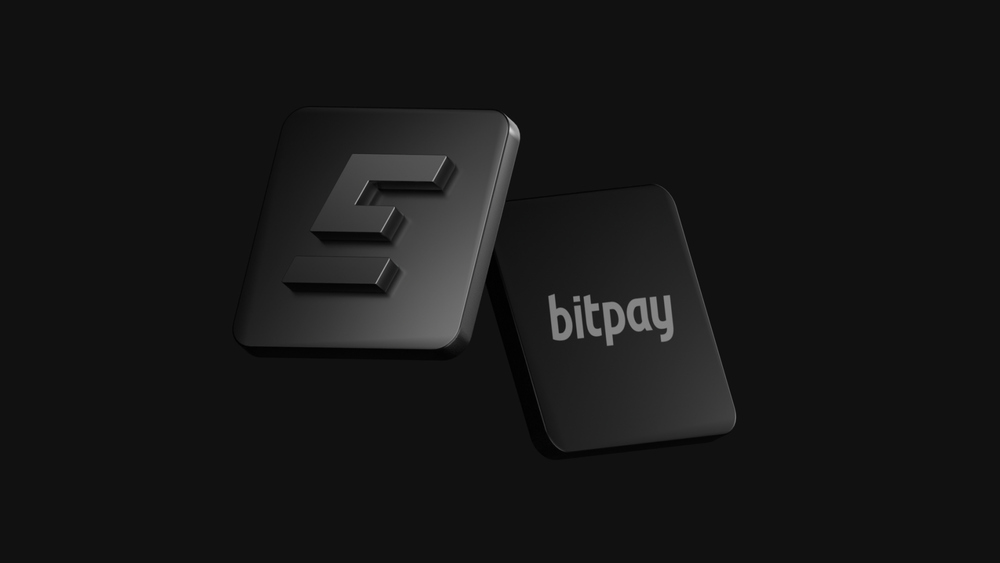Crypto Gateways Compared: BitPay vs EMCD for Payments, Payouts, and Business Growth

From fiat-friendly plugins to scalable crypto infrastructure — which processor really fits your business?
From simple invoicing tools to enterprise-grade crypto infrastructure, choosing the right payment gateway isn’t just about processing transactions — it’s a strategic decision that directly influences how your business earns, settles, and scales. As digital currencies become a more common part of global commerce, businesses are increasingly seeking solutions that are not only secure and compliant, but also tailored to their operating model.
In this comparison, we explore two leading platforms: BitPay for Business, a well-established solution focused on plug-and-play crypto checkout and fiat settlement, and EMCD, a crypto-fintech ecosystem that offers wallets, mining tools, flexible payouts, and customizable white-label infrastructure. Whether you’re launching a single storefront or building the backend of a global crypto product, understanding the core differences between these platforms is key to long-term success.
What BitPay offers for merchants and service providers
Founded in 2011, BitPay is one of the most recognized names in the crypto payments space. As a global crypto payment processor, BitPay allows businesses to accept major digital assets like Bitcoin, Ethereum, and USDC, while automatically converting them to fiat — removing volatility risk and simplifying reconciliation.
The BitPay Business platform includes:
- Invoice creation and tracking tools
- Integration with top e-commerce platforms like WooCommerce, Magento, X-Cart, and Wix
- B2B crypto payment support and cross-border transaction capabilities
- A consumer-focused BitPay debit card for spending digital assets
BitPay also prioritizes compliance. It is licensed to engage in virtual currency business activity by the New York State Department of Financial Services, operates under an official NMLS ID, and meets the regulatory expectations for operating in high-trust environments. This makes it especially appealing to retailers, service providers, and international businesses seeking a legally sound way to accept digital payments.
The platform’s strength lies in simplicity: about BitPay products is not just about checkout widgets — it’s about offering businesses a fast, clean, and compliant path into the world of crypto payments without requiring them to build or manage wallets or custody.
What EMCD provides for crypto-native businesses and B2B scaling
EMCD, in contrast, is built not just for accepting crypto — but for using it as an engine for business growth. Originating as a bitcoin mining pool, EMCD now ranks in the global top 10, securing nearly 2% of the total BTC network hash rate. Over time, the platform has evolved into a crypto-fintech provider that supports a wide spectrum of crypto business activity — from storage and trading to payout management and embedded finance.
Used by over 400 000 users in 80+ countries, EMCD offers:
- A secure, AML-screened EMCD Wallet supporting 23+ cryptocurrencies
- Coinhold — an earning solution with daily payouts and up to 14% APY
- A P2P exchange with 120+ trading pairs and support for fiat on/off-ramps
- A white-label crypto processor with a modular API stack for full integration
Unlike BitPay, which focuses on checkouts, EMCD offers complete infrastructure for fintechs, platforms, and exchanges that want to build branded wallets, automate crypto payouts, or offer interest-bearing services. EMCD’s ecosystem supports custody, liquidity flows, and partner integrations — giving businesses direct control over their crypto products without relying on multiple vendors.
It’s not just a tool — it’s a strategic foundation for crypto-native businesses that prioritize yield generation, operational scalability, and long-term platform independence.
Core features side-by-side: Comparing BitPay and EMCD
This feature-by-feature comparison outlines the core differences between BitPay and EMCD — from wallet support and fiat settlement to integration flexibility and developer access. BitPay is tailored for businesses prioritizing quick crypto checkouts. EMCD is structured for those building, scaling, and monetizing crypto infrastructure.
| Feature | BitPay | EMCD |
| Wallet support | No native wallet | Yes — secure EMCD Wallet for 23+ cryptocurrencies |
| Fiat settlement | Yes — automatic conversion | Yes — optional, with passive yield via Coinhold |
| Supported currencies | Bitcoin, stablecoins, select altcoins | 23+ coins, 120+ P2P pairs, 13 mineable assets |
| Integrations | Plugins for WooCommerce, Shopify, X-Cart | API-first platform, white-label B2B integrations |
| Developer access | REST API | Modular API stack with customizable endpoints |
Supported cryptocurrencies and stablecoins
How many assets can your business really work with — and how flexibly?
BitPay supports major cryptocurrencies such as Bitcoin, Ethereum, USDT, and USDC. Its crypto payment offering is optimized for simplicity — ideal for merchants focused on fast checkouts, fiat conversion, and minimal technical setup.
EMCD, however, provides more versatility. It supports 23+ digital assets through the EMCD Wallet, enables 120+ trading pairs on its P2P exchange, and includes support for 13 mineable coins — all within one connected ecosystem. With dual mining options and daily yield through Coinhold, EMCD helps businesses not just accept crypto, but also earn and manage it with more flexibility.
Transaction fees and pricing models
Fees don’t just affect revenue — they shape your cost structure and margins.
BitPay offers a flat and transparent model: most transactions incur a 1% processing fee, regardless of transaction size or payout method. It’s easy to understand and predictable — great for startups, but potentially limiting for high-volume flows.
EMCD offers more dynamic pricing. While baseline fees apply, business users can reduce or eliminate them by settling through Coinhold — an integrated yield product. This makes EMCD one of the best payment processors for companies seeking both cost-efficiency and revenue optimization from their crypto flows.
Integration options: Plugins, APIs, and platforms
How smoothly can each processor integrate with your existing business setup?
BitPay for Business supports quick deployment with plugins for major platforms like WooCommerce, Shopify, and X-Cart. It’s ideal for merchants looking for low-effort crypto payment tools with minimal backend changes.
EMCD takes a different approach. Its API-first software stack enables platforms to build custom wallets, automate payouts, and create branded earning tools. Perfect for fintechs and large-scale projects, EMCD provides processor-level control — without the constraints of pre-built plugins.
Merchant dashboard and analytics tools
BitPay offers a streamlined merchant dashboard that covers the basics: downloadable invoices, payment logs, and simple reports. It’s built for ease, and support is just a few clicks away via the help library — ideal for smaller teams or merchants just starting out.
EMCD, in contrast, delivers actionable insights. Businesses can monitor Coinhold returns, track referral activity, and access real-time wallet flows. Whether you're analyzing P2P volumes or optimizing earnings, EMCD’s dashboard is built for businesses that scale — and for teams that need their questions answered with data, not guesswork.
Settlement methods and processing speed
BitPay supports payouts in fiat or crypto, typically processed within 1–2 business days. It’s reliable and predictable — but may be too slow for businesses needing instant access.
EMCD offers instant withdrawals to any wallet and distributes Coinhold rewards daily. There are no payout delays or forced holding periods. For businesses where speed is strategic, EMCD enables liquidity to move as fast as your decisions.
User experience and interface comparison
BitPay focuses on a merchant-friendly UI: clean, intuitive, and centered on invoicing and order tracking. It works well for small merchants, but lacks flexibility for larger or multi-role operations.
EMCD provides a unified dashboard that integrates wallets, mining, P2P trading, and passive earnings. With mobile and desktop access, the experience supports both solo operators and enterprise teams — without sacrificing clarity. It’s an interface designed to evolve with your crypto business.
Customer support and community trust
BitPay offers a detailed help center and email-based ticket system. While structured and informative, resolution times may vary — and real-time support is unavailable.
EMCD provides 24/7 live chat with a guaranteed SLA under 15 minutes. Whether you're managing payouts or troubleshooting wallet issues, their support team is here to help — fast, personal, and always on.
Which types of businesses benefit most from each?
BitPay is the right fit for e-commerce merchants and service providers who want quick setup, fiat settlement, and easy crypto payment acceptance. Its checkout tools and plugins make it a strong choice for businesses with a simple sales flow.
EMCD is better suited for fintech startups, crypto-native platforms, mining-linked services, and high-volume processors. If your business needs custom infrastructure, integrated wallets, or smart earning tools — this crypto payment gateway is built for scaling with you.
Pros and cons of BitPay and EMCD
Here’s a quick side-by-side review of both platforms — to help you compare features, strengths, and trade-offs:
✅ BitPay — Pros
- Fast setup with plugins for WooCommerce, Shopify, X-Cart
- Trusted brand and regulatory compliance (BitPay business license)
- Simple fiat conversion and stablecoin support
❌ BitPay — Cons
- No native wallet or asset custody
- Basic reports, no advanced analytics
- No live chat — ticket-based support only
✅ EMCD — Pros
- Integrated crypto tools: Wallet, Coinhold, P2P, mining
- White-label processor for fintechs and growing platforms
- Instant payouts, daily earnings, real-time business reports
- 24/7 live chat support with SLA under 15 minutes
❌ EMCD — Cons
- API-first setup — no one-click plugins for storefronts
- Can be overbuilt for small e-commerce shops
- Learning curve for full-feature stack
If your priority is simplicity, BitPay is better. If your goal is growth, EMCD is stronger.
Final thoughts: Which payment gateway wins?
BitPay Business is a reliable choice for merchants who want fast crypto payment acceptance without complexity. But if your business is scaling, automating flows, or building crypto-native products — EMCD offers more control, more tools, and more potential to make crypto part of your long-term business strategy.
FAQ
What’s the key difference between BitPay and EMCD?
BitPay is a plug-and-play crypto payment gateway designed for e-commerce. EMCD offers infrastructure for wallets, payouts, and crypto monetization — built for scaling businesses.
Which platform offers lower transaction fees for merchants?
BitPay uses a fixed 1% fee model. EMCD allows flexible pricing — including the option to reduce fees to 0% using Coinhold-based settlement.
Are BitPay and EMCD suitable for international crypto transactions?
Yes, both support cross-border payments. EMCD offers broader currency flexibility and faster settlement for global operations.
Which platform is easier to integrate into an online store?
BitPay integrates quickly via WooCommerce and Shopify plugins. EMCD requires API integration but supports more advanced use cases.
How secure and compliant are BitPay and EMCD?
BitPay is licensed to engage in virtual currency business activity by the New York State Department of Financial Services. EMCD operates on ISO-certified infrastructure with 2FA, AML screening, and internal audits.
Which crypto gateway is better for scaling a business globally?
BitPay works best for small merchants focused on simple crypto checkouts. EMCD is ideal for businesses that want to grow through wallets, P2P, or high-volume crypto flows.
Still choosing your crypto payment gateway?
If you need simple checkout tools and fiat settlement, BitPay gets the job done. But if you're building serious crypto infrastructure — with wallets, yield tools, and global payouts — EMCD gives you the platform to scale.
Explore EMCD for Business — and turn every crypto payment into long-term growth.












